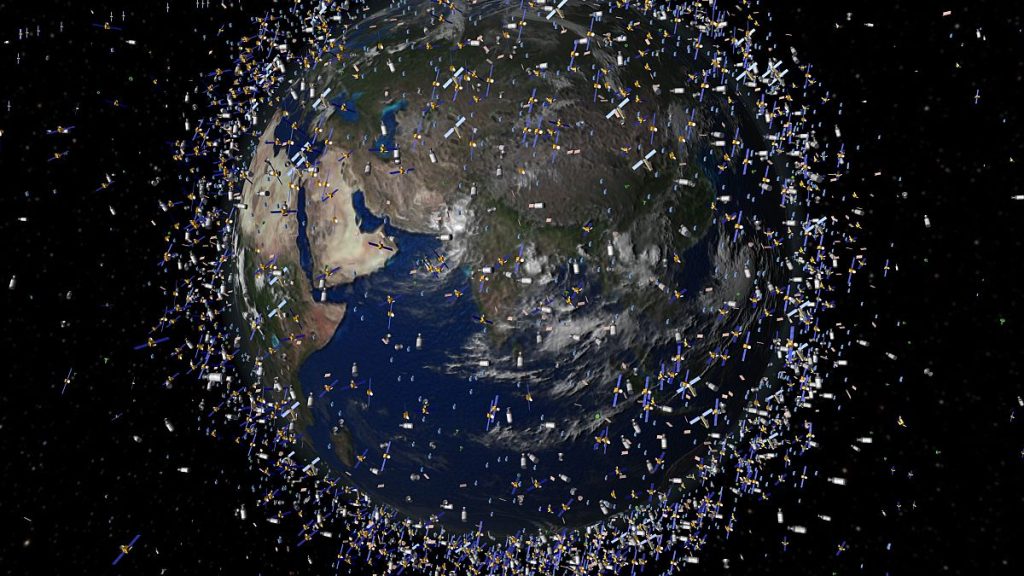The European Space Law is set to be the first of its kind in Europe, with the European Commission working towards presenting it in the coming months. This legislation is seen as necessary due to the increasing number of satellites being sent into space, especially in low Earth orbit. The uses of satellites have expanded beyond traditional functions, such as meteorological or military, to include providing internet to remote areas. This has led to a growth in the space industry, with private companies like SpaceX’s Starlink and Amazon’s Kuiper launching satellite constellations into space.
With more satellites being sent into space, there is also an increasing amount of space debris and defunct satellites orbiting Earth. This poses a threat to functioning satellites, as collisions can occur, causing damage. To combat this issue, companies are implementing measures such as active propulsion systems and shields on satellites to avoid collisions and protect them in case of impact. The European Space Agency is also taking steps to address space debris, with initiatives like the Zero Waste Charter and plans to de-orbit satellites that are no longer operational.
The European Space Agency believes that space legislation is crucial for regulating activities in space, which have been referred to as “the Wild West” by some European Parliament members and experts. The European Commission aims to create a single market for space activities, with the proposed law focusing on the security of satellite navigation, protection against cyber-attacks, and the development of the European space sector. While some EU countries like Germany and France already have space laws in place, the European Space Law will be the first to encompass the entire European Union.
At the European Space Forum held in Brussels, experts discussed the growing importance of the space industry and the need for regulations to ensure the sustainability and safety of activities in space. The issue of space debris, comprising millions of fragments orbiting Earth at high speeds, poses a significant threat to future space missions. Companies like Amazon’s Kuiper Project are implementing advanced technologies to protect satellites from collisions and minimize risks in orbit.
The increasing commercialization of space, with companies like SpaceX and Amazon investing in satellite constellations, has made it more attractive for private companies to venture into space. The European Space Agency recognizes the importance of regulating this industry to prevent overcrowding in orbit and ensure the safe operation of satellites. With the proposed European Space Law, the European Commission aims to establish a framework for space activities that prioritizes security, cyber-protection, and the growth of the European space sector as a key service provider in the global market.
In conclusion, as the space race continues to expand with more satellites being sent into orbit, the need for comprehensive space legislation becomes increasingly evident. The introduction of the European Space Law by the European Commission reflects a commitment to regulating and overseeing activities in space to ensure safety, security, and sustainable development in the space industry. With initiatives like the Zero Waste Charter and advancements in satellite technology, efforts are being made to address the challenges posed by space debris and defunct satellites, paving the way for a more organized and controlled approach to space exploration and utilization.


